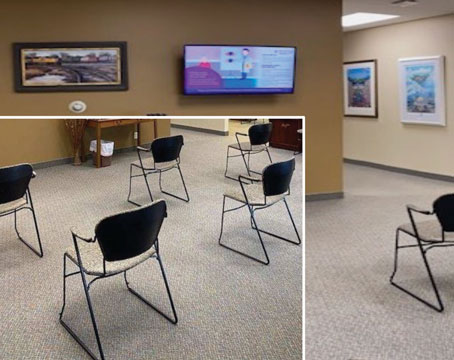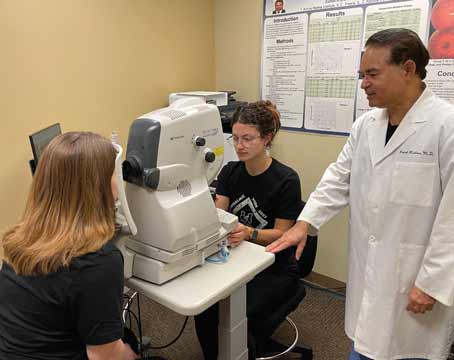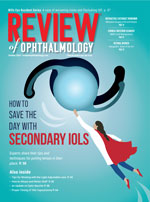While physician burnout has always been a problem, today’s doctors have more on their plates than doctors of previous generations, and they seem to be more affected by burnout than professionals in other fields.
A recent survey compared burnout and satisfaction with work/home life balance among physicians and those employed in other professions.1 The study included 7,288 physicians who completed surveys. When assessed using the Maslach Burnout Inventory, researchers found that 45.8 percent of physicians reported at least one symptom of burnout. Compared with a probability-based sample of 3,442 adults working in other professions, physicians were more likely to have symptoms of burnout (37.9 percent compared with 27.8 percent) and to be dissatisfied with their work/life balance (40.2 percent compared with 23.2 percent).
Why Do Physicians Burn Out?
“There are concerns that the ever-increasing pace of practice might be contributing to burnout because physicians are being asked to see more and more patients in less and less time,” says Colin P. West, MD, PhD, FACP, from the Divisions of General Internal Medicine and Biomedical Statistics and Informatics, Departments of Internal Medicine and Health Sciences Research, at the Mayo Clinic, in Rochester, Minn. “That sort of treadmill effect may play a role. There is also concern about what will happen if the practice of medicine continues to go in those directions while social structures are changing. For example, it is much more common to have dual-career households. Fifty years ago, stereotypically, the physician might work 60 hours a week while his wife was the homemaker. There was often a more starkly defined division of responsibilities. These days, spouses and partners don’t want that, and physicians themselves don’t want that. Today, there is the shared family model that I think is a societal change as well. That makes work/life balance that much more challenging.”
Additionally, there is much less division between work life and home life. With computers and smartphones, physicians may feel like they are always on call. It can be difficult to prevent work issues from invading home time. “One of my colleagues says that physicians can never disconnect from the grid,” Dr. West says. “We are connected with our smartphones, and we can remotely access into our patients’ data. There has always been some of that—physicians being on their pagers, etc.—but I think the volume may have increased.”
|
|
Helen Meldrum, EdD, an associate professor of psychology in the Program of Health Sciences and Industry at Bentley University in Waltham, Mass., agrees. “It’s only in recent times when a physician gives the patient a treatment option, and the patient says, ‘that’s not what I Googled.’ Physicians used to be able to count on a certain amount of authority, but their authority is at an all-time low because patients feel like they are well-educated by the Internet,” she says.
The business side of medicine may also be partly to blame. “When doctors go to medical school, they are looking forward to the chance to have relationships with patients,” Dr. West says. “Anything that gets in the way of those relationships can contribute to dissatisfaction and burnout. We have focused our work in the past decade on trying to document the problem, and it has been a really interesting transition in recent years. When we first started our group’s work, we would receive comments that people didn’t believe it was a significant issue. Now, we are getting a lot more acceptance that this is a pervasive problem.”
A recent study found that surgeons in private practice were more likely to experience burnout than their colleagues in academic practice.2 The study compared distress parameters and career satisfaction from survey results of surgeons in 14 specialties. It found that academic surgeons were less likely to screen positive for depression or to have suicide ideation. They were also more likely to experience career satisfaction and to recommend a medical career to their children.
For academic surgeons, the most significant positive associations with burnout were being a trauma surgeon, number of nights on call and hours worked. For private practice surgeons, the most significant associations with burnout were being a urologic surgeon, having 31 percent to 50 percent time for nonclinical activities, incentive-based pay, nights on call and hours worked.
Additionally, physicians may be putting unnecessary pressure on themselves because of their personality types. “There have been a couple of articles written over the years on the compulsive personality type and the contribution of perfectionism and excessive sense of responsibility of physicians,” Dr. West says. “The people who are selected to go to medical school and self-select to go into medical school are people who tend to have perfectionist tendencies. One definition of burnout that I heard is the distance between what a person is able to do and what he feels he should be doing. Because the bar is very high for doctors, in terms of their own bar and society’s bar, it makes it difficult for doctors to live up to their own high expectations as well as the external expectations. As the number of patients increases and the amount of things the doctor feels like she needs to be doing increases, the possibility of living up to her own high expectations becomes smaller, and that creates conditions for burnout as well.”
Dr. Meldrum adds that debt may be a contributing factor because many physicians are taking on consulting jobs to pay off their medical school debt. “Many physicians are taking on extra consulting jobs just because they are so saddled with debt,” she says. “If you work inhuman hours, where are your friends and family in the picture? They are unhappier with you than ever. When doctors are home, they are often cranky and overstressed and tired.”
Dr. West and his colleagues conducted a study to evaluate the relationship between well-being and demographics, educational debt and medical knowledge.3 The study included 16,187 residents. In this study, sub-optimal quality-of-life and symptoms of burnout were common, and higher debt (more than $200,000) was associated with symptoms of burnout.
“Then, there are the physicians who are older in a supervising role and their direct reports have staff to manage,” Dr. Meldrum says. “The stress of not having a support staff that has good interpersonal skills means that more and more things get bumped upstairs. Additionally, patients are more demanding, so physicians are hearing more complaints than they did in the past.”
Prevention Strategies
Fortunately, there are many things physicians can do to prevent burnout or to turn things around once they start feeling burned out.
Dr. Meldrum conducted a study on physicians’ strategies for avoiding burnout and found that some helpful techniques for avoiding burnout included setting limits, sharing issues with friends and family, physical exercise, cultivating relaxation and humor.4
Matthew J. Goodman, MD, an internist and co-director of the University of Virginia’s Mindfulness-Based Stress Reduction Program in Charlottesville, Va., recommends the following:
• Foster healthy family relationships and friendships.• Keep hobbies alive.• Have a religious or spiritual affiliation.• Look to find meaning in your work.• Find a mentor.
Dr. Goodman notes that, because there is growing awareness about physician burnout, there are groups of physicians who are looking at ways to get together. “Physicians rarely talk to each other except about medicine and patients, but it can be helpful to become part of a group of like-minded physicians who can serve as a support group or share experiences.”
Dr. Goodman and his colleagues have done some work with teaching mindfulness to physicians, and data is becoming available on mindfulness classes to help with physician self-awareness and developing the ability to maintain a sense of calm or to be in difficult circumstances and not get carried away by them.5
Dr. Goodman’s study included 93 health-care providers, including physicians from multiple specialties, nurses, psychologists and social workers who practice in both university and community settings. The health-care providers attended a continuing-education course based on mindfulness-based stress reduction. The course met 2.5 hours a week for eight weeks plus a seven-hour retreat. The classes included training in four types of formal mindfulness practices, including the body scan, mindful movement, walking meditation and sitting meditation. Providers’ Maslach Burnout Inventory scores improved significantly from before to after the course for both physicians and other health-care providers for the Emotional Exhaustion, Depersonalization and Personal Accomplishment scales. Mental well-being also improved significantly.
He notes that, while mid-career physicians are at risk, burnout can happen at any age or career stage. “Mid-career physicians have been practicing medicine long enough that some of the novelty has worn off,” Dr. Goodman says. “Some of their idealism is being challenged by what they are expected to do. This is a group that is really is need of self-renewal. In our classes, we have had physicians from all stages. There is a certain amount of burnout even among residents.”
Dr. Meldrum recommends keeping close tabs on your office environment and quickly addressing any conflicts that arise. “A lot of times, I get called in because the collegial relationships have gotten so petty that it’s causing burnout in the office,” she says. “People are negatively complaining behind other people’s backs about certain staff being treated better than other staff members. If you notice that you are getting up later and later and are not looking forward to going to work, you know that there is growing resistance. When people ‘clock watch’ in pairs and packs in the practice setting, that’s another sign of toxicity. If the office has become a toxic environment, physicians really need to invest in some additional training for everyone at all levels.”
Other important ways to avoid burnout are to maintain a healthy work/home life balance and to spend as much work time as possible treating patients, rather than performing administrative tasks. “We know that if you take away autonomy and control from physicians, they do worse,” Dr. West says. “So, the idea that physicians should be told when to see patients and how much time they get with each patient doesn’t work well. We know that physicians who work themselves into the ground don’t have anything left for their patients, so workload is part of this. We know that things that distract physicians from the interpersonal relationships, such as excessive paperwork and excessive administrative burdens, are not good for physician well-being. We know that physicians who work to the point that it detracts from their home lives develop problems. I don’t know that anyone has the magic solution to work/personal life balance, but physicians need to be aware of where they are on their own stress curves.”
Additionally, physicians need to remember that by taking care of themselves, they are actually caring for their patients. REVIEW
1. Shanafelt TD, Boone S, Tan L, et al. Burnout and satisfaction with work-life balance among US physicians relative to the general population. Arch Intern Med 2012;172(18):1377-1385.
2. Balch CM, Shanafelt TD, Sloan JA, Satele DV, Freischlag JA. Distress and career satisfaction among 14 surgical specialties, comparing academic and private practice settings. Ann Surg 2011;254(4):558-568.
3. West CP, Shanafelt TD, Kolars JC. Quality of life, burnout, educational debt, and medical knowledge among internal medicine residents. JAMA 2011;306(9):952-960.
4. Meldrum H. Exemplary physicians’ strategies for avoiding burnout. Health Care Manag (Frederick) 2010;29(4):321-331.
5. Goodman MJ, Schorling JB. A mindfulness course decreases burnout and improves well-being among healthcare providers. Int J Psychiatry Med 2012;43(2):119-128.







